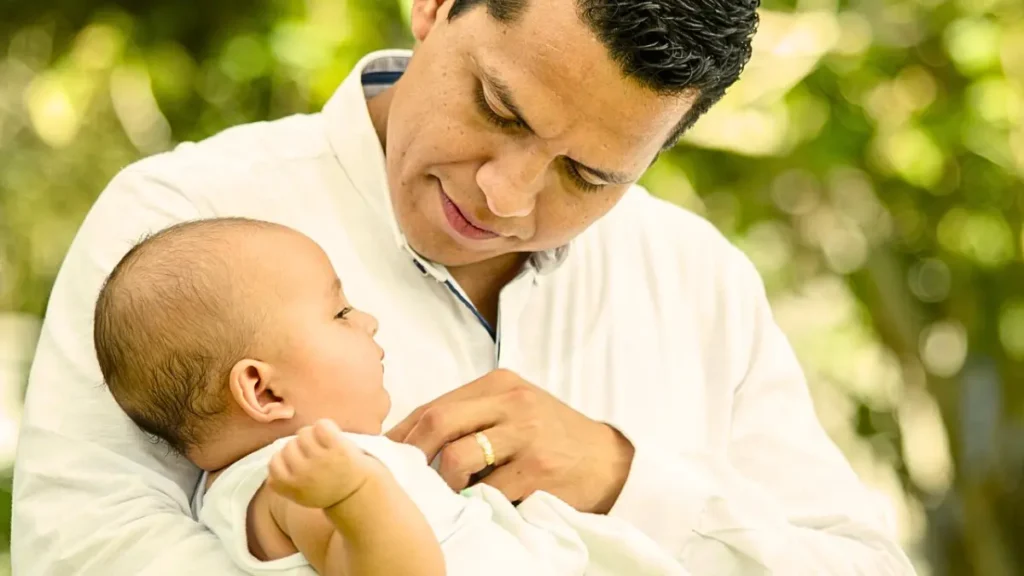Introduction:
If you’re going through a divorce or custody arrangement, you may be asking, What Does Custodial Parent Mean? Understanding this legal term is crucial for navigating parenting plans, visitation rights, and child support. A custodial parent is typically the one with whom the child lives most of the time and who has primary responsibility for day-to-day care. In this article, we’ll explain what it means to be a custodial parent, how it affects legal decisions, and why it matters in family law.
What Does Custodial Parent Mean?
Understanding the term custodial parent is crucial for divorced or separated parents. In U.S. family law, a custodial parent is the parent who has primary physical custody of a child – in other words, the child lives with that parent most of the time. This parent typically provides the child’s main home and handles daily care tasks like meals, school, and appointments. For example, if a court grants one parent sole or primary custody, that parent is legally the custodial parent. In some jurisdictions, the term “custodial parent” is also called the residential parent or primary caretaker.

When parents share custody, both can be considered custodial. The U.S. Legal Information Institute notes that if parents split custody equally in a joint custody arrangement, both are technically custodial parents law.cornell.edu. However, in practice, one parent is often designated as the “primary” parent for purposes like school registration or tax claims (usually the parent with whom the child spends slightly more time) divorcenet.com.
Custodial vs. Non-Custodial Parent
In most custody arrangements, one parent is custodial and the other is non-custodial. The non-custodial parent is the parent who does not have primary physical custody; they typically have limited parenting time or visitation. law.cornell.edu. Key differences include:
- Custodial Parent: Lives with the child the majority of the time and provides the child’s primary home and care. This parent usually handles day-to-day needs (food, housing, schooling, etc.) and, for tax purposes, generally can claim the child as a dependent.
- Non-Custodial Parent: Spends less time with the child and typically has scheduled visitation (weekends, holidays, etc.). law.cornell.edu. The non-custodial parent often pays child support to help cover the child’s expenses and may share legal custody (decision-making) with the custodial parent.
- Joint or 50/50 Custody: If parents share custody equally, both are technically custodial parentslaw.cornell.edu. Usually, the court or a parenting plan will still designate one parent as the primary residential parent (often the one who has the child at night most often).
- Physical vs. Legal Custody: Physical custody determines where the child lives, while legal custody involves the right to make major decisions (education, health care, etc.). A custodial parent has physical custody, but parents can share joint legal custody, meaning they must consult each other on important issues.
In either scenario, custodial parents must follow any court orders about the non-custodial parent’s rights. For example, a custodial parent is usually required to facilitate court-ordered visitation and may not relocate the child out of the jurisdiction without permission.

How Custody Is Determined in U.S. Courts
U.S. courts decide custody on a case-by-case basis, with the guiding principle being the child’s best interestslaw.cornell.edu. Judges evaluate many factors – no single factor is decisive – to determine which arrangement best supports the child’s well-being. Key considerations include:
- The child’s age and, if old enough, their preference.
- Each parent’s mental and physical health.
- The emotional bond between the child and each parent.
- Each parent’s ability to provide a stable, loving home (shelter, food, education, medical care) is law.cornell.edu.
- Any evidence of abuse, neglect, or substance abuse, which courts consider heavily (when applicable).
The court weighs all factors together. For example, a parent who has been the child’s primary caregiver will often have an advantage, since continuity and stability are usually in the child’s best interest (law.cornell.edu). If one parent has been largely absent (due to work, incarceration, or otherwise), the court typically names the more-involved parent as the custodial parent. Each state may have its specific statutes listing these factors, but the overall goal is always the child’s safety, stability, and happiness.
📌 You Must Read: Will I See My Parents in Heaven When I Die in 2025?

Examples of Custody Arrangements
To illustrate custodial parenting, consider these scenarios:
- Example 1: A divorced couple with one child. The court awards Mother primary physical custody, so the child lives with her most of the time. Mother is the custodial parent; Father is the non-custodial parent with visitation every other weekend. Father pays child support to help with expenses.
- Example 2: A 50/50 joint custody agreement. Parents alternate weeks with the child. In this case, both parents are custodial since the child spends equal time with each parent. Legally, one parent may still be listed as the “custodial” or residential parent for administrative purposes (often the parent the child lives with on their birthday or the first night of the school year) divorcenet.com.
- Example 3: Unmarried parents where the father lives separately. The child has lived almost exclusively with Mom since birth. Mom is the custodial parent (primary caregiver). Dad is non-custodial but may have visitation if arranged. Mom claims the child on taxes; Dad pays child support.
- Example 4: One parent is incapacitated or absent. If a mother is out of the picture (e.g. incarcerated or gave up rights), the father becomes the custodial parent. The law automatically treats the present parent as custodial if the other parent is not in the child’s life.
👉 Recommended for You: 17 Signs of Parental Alienation That Will Break Your Heart in 2025
Frequently Asked Questions (FAQs)
What does “custodial parent” mean?
A custodial parent is the parent with whom the child lives for the majority of the time. In U.S. law, this means the parent has primary physical custody. They provide the child’s home and daily care.
What is a non-custodial parent?
A non-custodial parent is the other parent who does not have primary physical custody. This parent usually has scheduled visitation or shared custody time, but the child does not live with them most of the time. Non-custodial parents often pay child support and may share legal custody for decision-making.
How is legal custody different from physical custody?
Physical custody refers to who the child lives with, while legal custody refers to who makes major decisions about the child’s welfare. A custodial parent has physical custody. Parents can share joint legal custody, meaning both must agree on big issues (education, healthcare, etc.) even if only one is the physical custodian, law.cornell.edu.
Who pays child support?
Typically, the non-custodial parent (the parent the child does not live with most of the time) pays child support to the custodial parent. Child support is meant to cover the child’s living expenses. This obligation exists regardless of whether the non-custodial parent has joint custody or just visitation.
Who claims the child as a dependent on taxes?
Generally, the custodial parent – i.e., the parent with whom the child lived more nights during the year – claims the child on tax returns. The IRS rule is that only the custodial parent can claim the child, unless they sign IRS Form 8332 to release that right to the non-custodial parent.
How do courts decide custody between parents? Courts decide based on the child’s best interests, law.cornell.edu. This means considering many factors (child’s needs, parent-child relationships, each parent’s situation) to determine which arrangement benefits the child law.cornell.edu. There’s no fixed formula; judges evaluate evidence and testimony to protect the child’s welfare above all.
Can both parents be custodial parents?
Yes, in joint or shared custody arrangements, both parents can be considered custodial since the child spends significant time with each parent. Often, one parent is still listed as the primary residential parent for logistical reasons, but joint custody means both parents actively care for the child. Each family’s situation is unique. It’s often helpful to consult a family law attorney or mediator if you have specific questions about your custody arrangement. The goal of any custody agreement is to serve the best interests of the child, ensuring they have stability, love, and support from both parents as appropriate.

Overview
| Aspect | Description |
|---|---|
| Definition | A custodial parent is the mother or father who, by court order, has sole or primary physical custody of a child and with whom the child spends most of the time, providing the primary home and daily care (DivorceNet, LegalZoom). |
| Legal Code Definition (USC) | Under 26 USC § 152(e)(4), “custodial parent” means the parent having custody for the greater portion of the calendar year; the other parent is the noncustodial parent (Legal Information Institute, Legal Information Institute). |
| Primary Responsibilities | Responsible for daily physical and emotional care, including meals, shelter, schooling, medical appointments, and general supervision of the child’s well‑being (Legal Information Institute, Wolfe & Stec). |
| Physical vs. Legal Custody | In 50/50 or shared‑time arrangements, both parents may be considered custodial, but technically, one parent spends at least one more day per year to meet the “greater portion” standard (Divorce.com, Nolo). |
| Tax & Dependent Claim | Generally, the custodial parent can claim the child as a dependent on federal tax returns unless they sign IRS Form 8332 to release that right (Legal Information Institute, Legal Information Institute). |
| Visitation & Support Payments | The noncustodial parent typically has court‑ordered visitation rights (weekends, holidays) and pays child support to assist with the child’s expenses (Wolfe & Stec, Nolo). |
| Joint Custody Consideration | For example, in a divorce, the Mother is granted primary physical custody (the child lives with her 70% of the time) and is the custodial parent; the father has visitation every other weekend and pays support; and the mother claims the child on taxes (DivorceNet, Divorce.com). |
| Example Scenario | E.g., in a divorce, Mother is granted primary physical custody (child lives with her 70% of the time) and is custodial parent; Father has visitation every other weekend and pays support; Mother claims the child on taxes (DivorceNet, Divorce.com). |
🔥 Don’t Miss This: 10 Qualities of a Good Parent in the USA in 2025
Conclusion:
So, What Does Custodial Parent Mean? In simple terms, it’s the parent who has the primary day-to-day responsibility for a child after separation or divorce. Knowing the legal and emotional responsibilities tied to this role can help parents make informed decisions and create a stable environment for their children. Whether you’re currently in a custody battle or just seeking clarity, understanding this concept is a key step in protecting your parental rights.
Sources:
law.cornell.edu, legalmatch.com, IRS.gov, and en.wikipedia.org.

